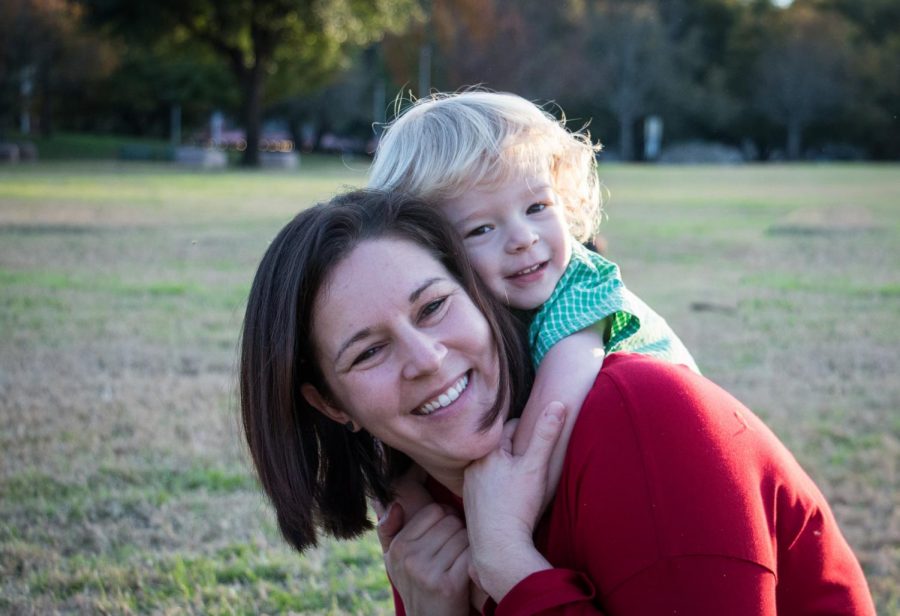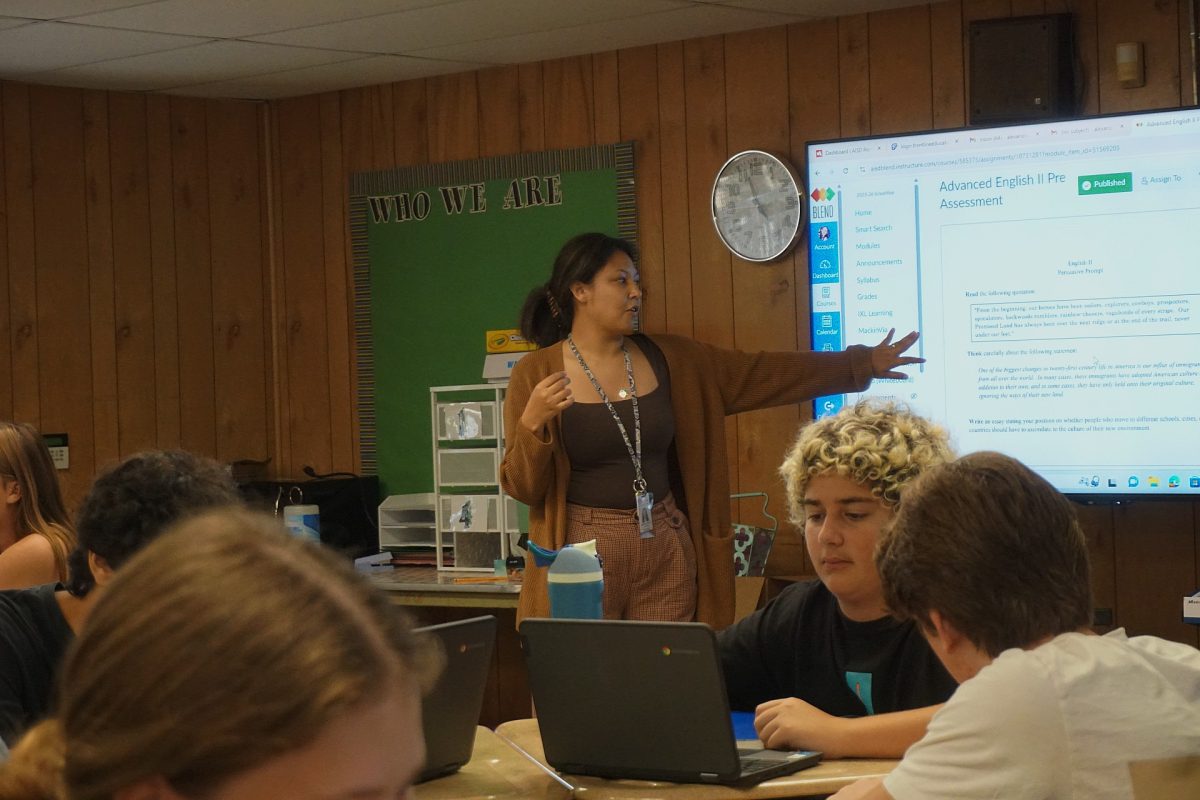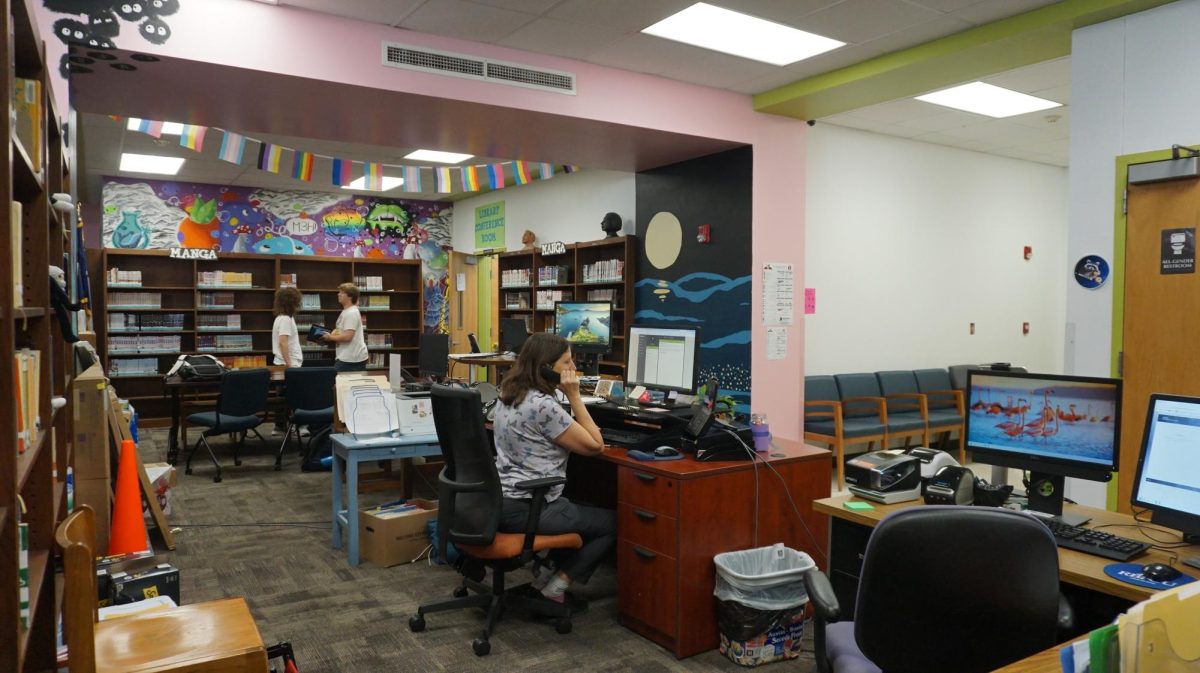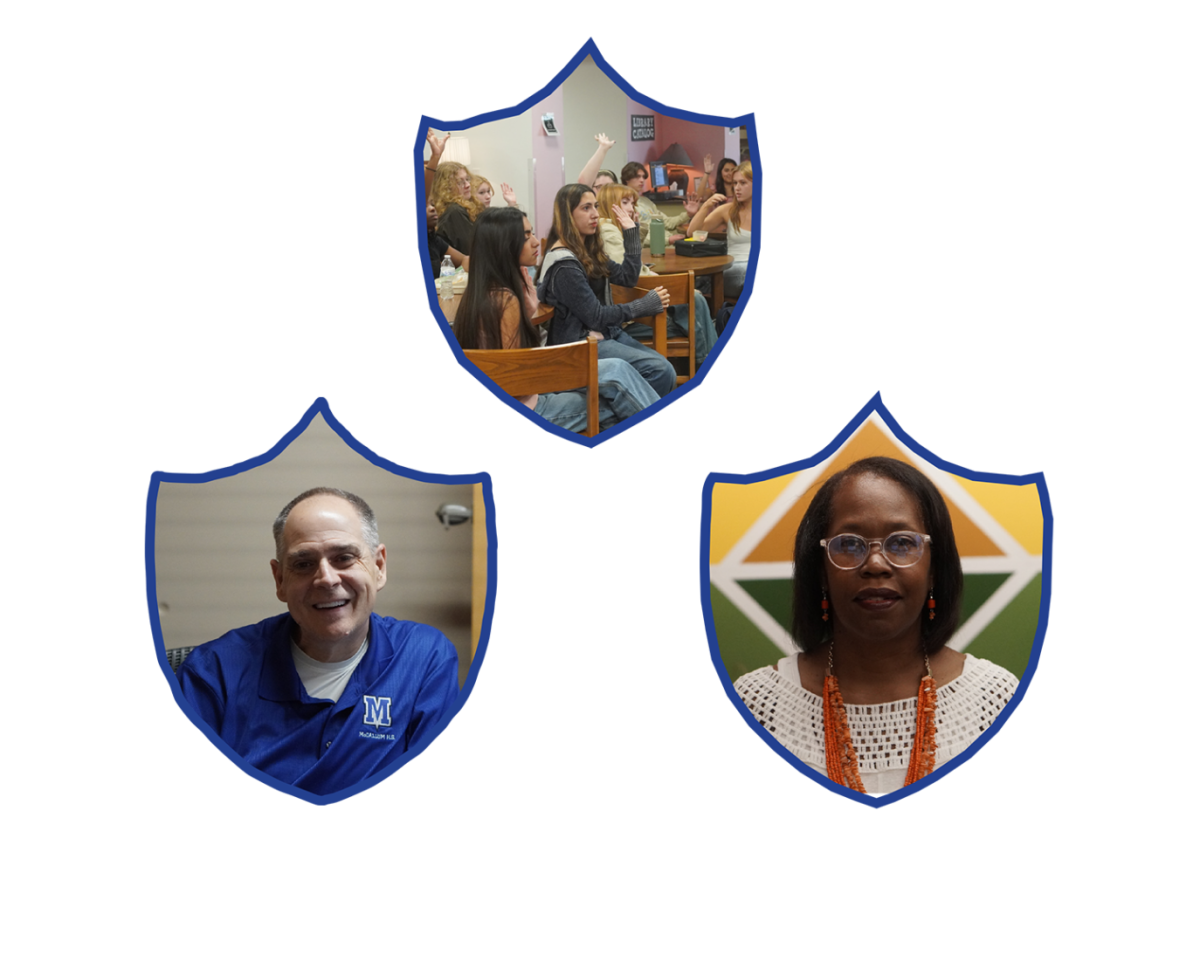Tuesday was Nicole Griffith’s first day as McCallum’s new interim principal, and she already has an established agenda.
First on the list, of course, is getting to know the McCallum community, something she knows is critical if she is going to serve the school as best as she can. As for her other goals, they are things she has been observing in students for more than a decade as an educator and administrator. During her time as principal, she plans to focus on things that will make McCallum a better learning environment: better SEL lessons, more authentic learning experiences, continued restorative justice practices and efforts to push diversity and integration. Griffith understands that education can be better, and she promises that McCallum won’t only be better but will lead the way for the rest of the district.
Griffith comes from Austin High with 13 years of experience, the first seven were spent as a world geography teacher, then she was the director of the Academy for Global Studies and the last three she helped implement the creation of three new academies and served as director of all four academies.
One McCallum teacher, Cassandra Troy, was an eyewitness to Griffith’s work at Austin High because she was a colleague there before coming to Mac herself last year.
“Directing that program at Austin High was a tightrope act: it took finesse, patience, creativity, and straight-up grit to run that show,” English teacher Cassandra Troy said, who knew Griffith as both a teacher and administrator while both worked at Austin High. “[Nicole Griffith] is hands-on and full of ideas. She’s intuitive and isn’t afraid to try new things. She is also an ally in the truest sense, for her teachers and her students, which is what we all need right now. She is going to take great care of us. I have no doubt that you will love her, too.”
Before she ever stepped foot in Austin High, Griffith spent a semester studying with the National Outdoor Leadership School as an outdoor educator in Australia. Those first experiences in education were unconventional, which is exactly why she loved it so much. After graduation, she led wilderness expeditions in the Pacific Northwest with high school students. She discovered a passion for working with kids, and saw how they open up when engaging in a non-traditional classroom setting.
“I started out as an outdoor educator, as a wilderness instructor when I was young. I took kids into the Pacific Northwest and took them on big wilderness trips,” Griffith said. “It was where I saw [how kids react when] you don’t give a grade. They’re so excited to learn that they are learning for the sake of learning. I had so many moments of like, oh, why isn’t school more like this? Right? Like, why is it not more authentic?”
After the semester ended, Griffith traveled from Australia to Paris, where she worked as a bike tour guide and explored the world in between.
“It was amazing. [After the job in Paris] I just started to travel, I travelled all over the place. As I was traveling, I kept thinking, I really wish I knew all these things about the world, [because] I was learning so much,” Griffith said. “And again, [my time abroad is what] helps inform that whole piece of me that’s like, let’s get out of the classroom and learn, because the world is there for us to learn from.”
After her experiences in international travel, Griffith decided on a career that seemed tailored to her passions. Her degree is in photojournalism, but Griffith soon realized that she missed the social interaction that that job lacked. Teaching, on the other hand, was the perfect fit.
“I figured out one day, I wanted to work with young people, and I wanted to teach them about the world,” Griffith said. “I wanted to do what I felt like hadn’t I hadn’t been given as a kid. I had never taken a world geography class. It was not a part of my high school.”
Griffith decided to go back to school to get a degree in geography. She then began her first classroom job as a world geography teacher at Austin High, a class that she said was easy to make fun and engaging. As much as Griffith loved working with students directly, she realized that her ideas were much more suited to an administration role.
“I actually ran our Student Leadership Program [at Austin High] and loved it. But I just started to have these ideas of how the school could be run differently, and then I would share those ideas with everybody and nobody wanted to listen to me,” Griffith said. “When you become an administrator, you have the ability to have more broad influence. I think I like to live in that big picture arena of how do we create systems that are equitable? How do we create systems that are engaging and from a student perspective really work, and kids want to come to school? That’s just where I like to think, and it fits me better as far as my skill set.”
Griffith knows that her first year as principal is going to have some unique challenges. Navigating a global pandemic while also starting as the head of a new school is not going to be easy, but Mac’s new principal is taking it in stride, committing to provide quality in-classroom and online education, all while brainstorming ways to make school something students can enjoy and crossing her fingers that a vaccine will get here before prom.
“I’m worried right now with a number of COVID cases that are in Travis County and just how it doesn’t seem to be getting better. I’m also really wanting to think of ways that we can make senior year really special for [rising seniors],” Griffith said. “That’s something that’s on my mind… I want you to have a good senior year, I want you to have those social interactions and have that pride and that [feeling that it’s] your year.”
The challenges of social distance learning are just the surface of what Griffith hopes to tackle. Like many, she feels reinvigorated by the nationwide fight against police brutality to combat racism in the world, and to use her platform as principal to fight against its presence in schools.
“A whole lot of schools in the United States are very segregated. I haven’t looked at the rolls [of who has] signed up for AP and pre-AP versus not, but I imagine we also have some segregation on our campus as well,” Griffith said. “It’s work that we have to do as a whole community so that we see equity. And we’ll see equity when the color of a student’s skin is not a predictor of where they are in the level that they’re taking.”
As an educator, Griffith feels her primary goal is to promote an inclusive space in which all students feel safe to learn and grow.
“We need a space to talk about things like suicide prevention … and drugs and alcohol, which are very hard to talk about. LGBT issues is another one that I think is in a similar realm. [We need to teach] not just students, but teachers too: what do you do when somebody comes to you? How do you help?” Griffith said. “The more we talk about it and give them tools, perhaps the easier it gets.”
Griffith said that communication is the most important component in effectively removing discrimination and segregation. Griffith added that in order to have good communication, teachers and administrators will need to work to shift their conversational attitude from criticizing when someone is wrong to supporting when someone arrives at an opportunity for growth.
Since she feels education is the most important component in effectively combating discrimination, Griffith hopes to promote constructive conversations outside the classroom but also to build them directly into the curriculum.
“It’s about learning, right? I think taking a look at the curriculum and where you can bring in [opportunities for conversation] will be important,” Griffith said. “I mean, an easy thing is let’s look at what literature we’re reading in English. Can we bring in a more diverse group of voices and authors?”
Educating herself has given Griffith a better understanding of how her own race plays a part in the cycle of continued racism. Specifically after reading White Fragility by Robin DiAngelo, Griffith is happy to have the opportunity as principal to help widen students’ views.
“[DiAngelo] talks about how, you know, we read Shakespeare and we read all these white authors and they speak to the human experience. And then we might read Toni Morrison or we might read Sandra Cisneros to talk about the black experience and the Latino experience. And that’s bizarre because white people don’t make up the human experience, but that’s the message we send to kids when we only read [white authors],” Griffith said.
Keeping with the work done last year to establish student leadership, she also wants to foster more opportunities for students to voice their own goals and influence the school. Griffith sees these changes coming in many forms, whether it be in training teachers on how to build meaningful conversations into their curriculum, giving students the tools to talk about sensitive topics, and even founding community committees that directly focus on equity and anti-racism.
“I know that [McCallum] has started a journey in restorative justice and restorative practices as a campus,” Griffith said.” I think the more kids that can go through social justice training and teachers [the better]. We all have a journey to go through. It’s about meeting everybody where they are, and pushing our campus to be the leader in social justice practices.”
Griffith is looking forward to tackling these problems locally, and making her efforts reflective of the community. Teamwork, collaboration, and building strong relationships are important to Griffith as an administrator, and as someone striving for change.
“I’m definitely a people person. I like to really build on relationships. And it is just my firm belief that the leader’s role in the school is to support the work that’s happening, and the work that’s happening [here] is in the classroom,” Griffith said. “ I really kind of take more of a servant leader role. I’m one of those people that whenever we need a committee to get together to think about something I’m always like, yep, me because I just love that. But I don’t love to do that in a vacuum. I love to do it with a team, and so I think it’s a real collaborative approach.”
Through collaboration and conversation, Griffin hopes that McCallum can continue to evolve into everything the community needs it to be. Through local change, uplifting student voices, and rethinking classrooms and curriculum, Griffith knows McCallum has the potential to serve as a leader of change to the rest of the district.
“I see McCallum as being the example,” Griffith said. “The start is already there. A lot of these critical conversations have already started, especially last year. And where can we go with it? My gosh, let’s be the example.”









Laura Rea • Jun 24, 2020 at 6:29 pm
Welcome, Ms. Griffith! Looking forward to getting to know you. Hopefully we can have a zoom parent/teacher/admin meeting again like Ms. Hosack set up near the end of the school year? With COVID-19, we won’t get all the usual opportunities to meet and greet you, but I know we can do this in a creative way.